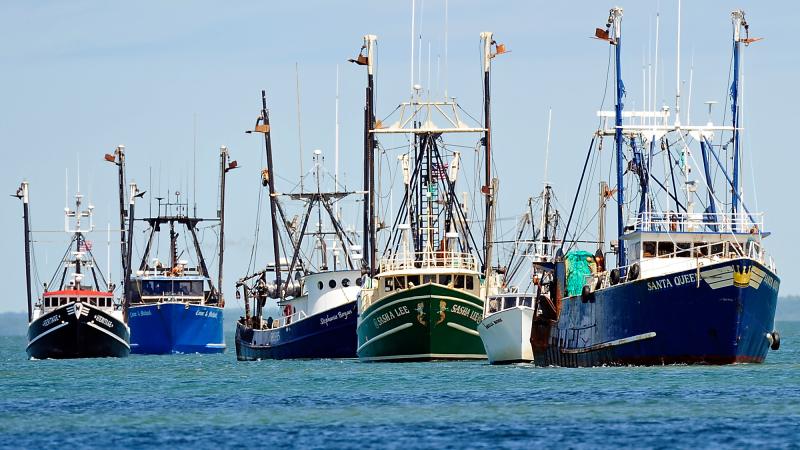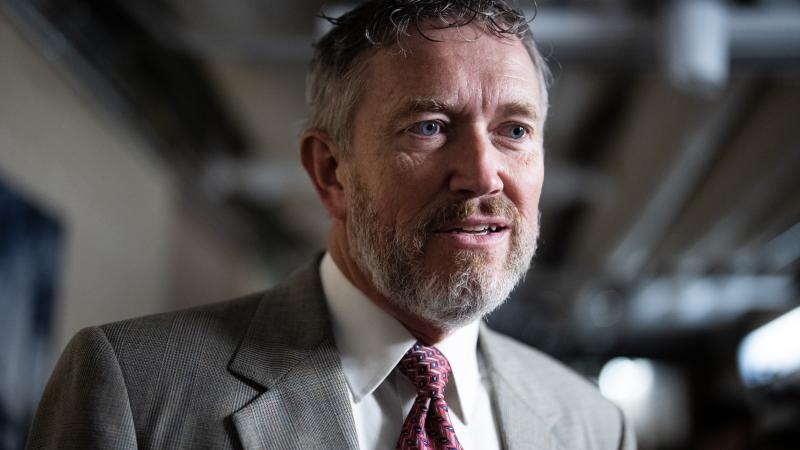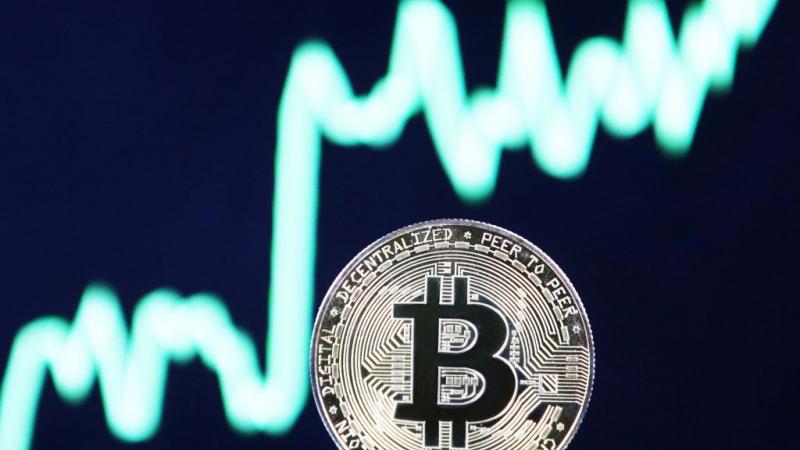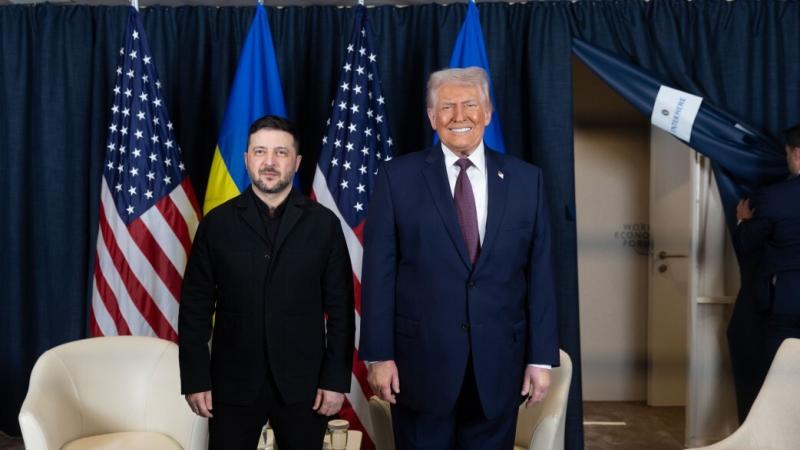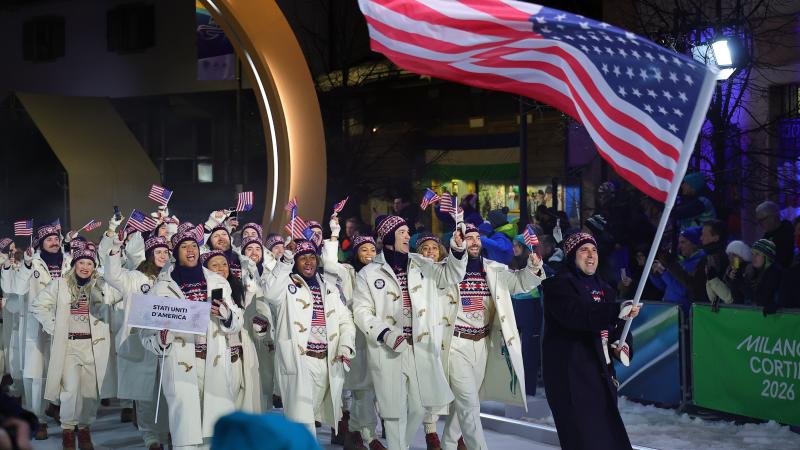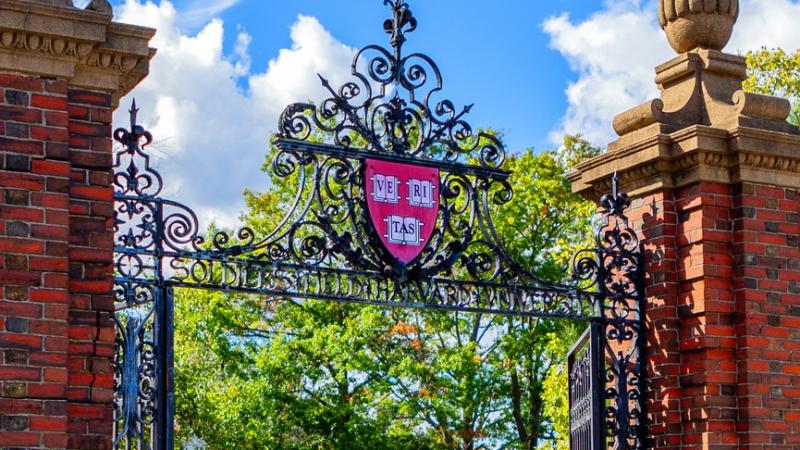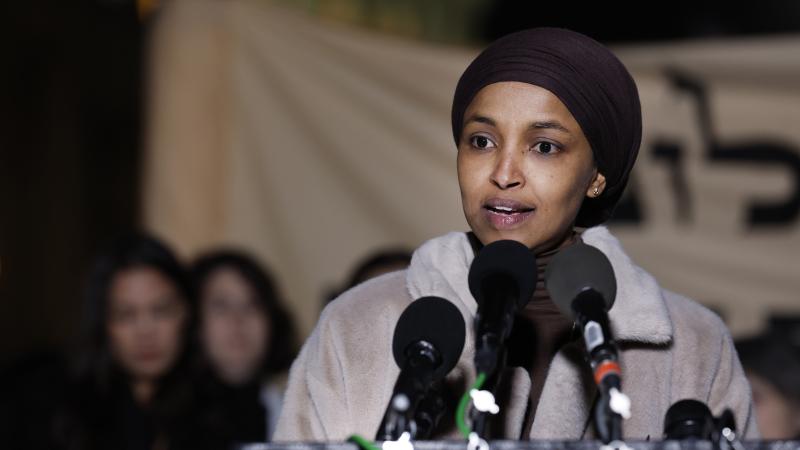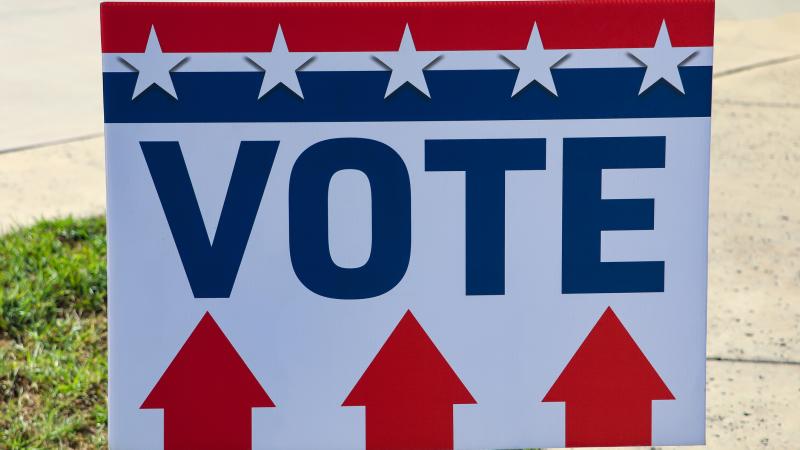DOJ nearing decision on indicting former FBI Director James Comey in coming days: sources
Comey may be charged over alleged false statements he made about not authorizing leaks to the press.
The Justice Department is nearing a decision on whether to indict fired FBI Director James Comey in the Eastern District of Virginia in the near future, sources confirmed with Just the News.
The news comes two weeks after former Comey adviser and Columbia University law professor Daniel Richman was subpoenaed as part of a criminal probe. President Donald Trump has argued that Comey broke the law by sharing memos with classified information with the New York Times.
The news of a possible indictment, first reported by MSNBC, also comes after U.S. Attorney for the Eastern District of Virginia Erik S. Siebert resigned last week, allegedly under pressure from the Trump administration to bring charges against Comey.
President Trump swiftly replaced him with attorney and top White House attorney Lindsey Halligan. She will serve on an interm basis, ahead of a congressional confirmation process.
Sources told Just the News that at least one element of the indictment – if it goes forward – will contend that Comey lied to Congress during his testimony in late September 2020, when he denied that he had ever authorized a leak of information to the media about the Trump-Russia investigation or Clinton-related investigations. The five-year statute of limitations on the charge would likely lapse this coming Tuesday.
Just the News revealed last month that Richman had previously admitted to federal agents in interviews that he routinely communicated on behalf of Comey, his longtime friend, with Times reporter Michael Schmidt, whose work was among the newspaper's 2018 Pulitzer-winning stories on Russian election interference.
The goal, Richman told the FBI, was "to correct stories critical of Comey, the FBI, and to shape future press coverage" outside of the bureau's official press office, according to internal FBI memos that current FBI Director Kash Patel delivered to Congress last month.
While Richman was known to have been publicly quoted in news stories as an advocate for Comey, he admitted to agents — who were part of the FBI’s Arctic Haze classified leaks inquiry — that he was given access by Comey to what turned out to be highly classified information up to the SCI level and sometimes provided information to reporters on an anonymous basis.
Richman insisted to investigators that he did not believe he had confirmed or provided classified intelligence to reporters but said he could not be 100 percent, the memos state, noting he could only make his leak denial “with a discount.”
The Justice Department decided not to pursue any criminal charges against Comey in 2021, but that may soon change.
Senate Judiciary Committee Chairman Chuck Grassley, R-Iowa, had asked Comey in a May 2017 hearing whether he had “ever been an anonymous source in news reports about matters relating to the Trump investigation or the Clinton investigation.”
Comey replied, “Never.”
Grassley then asked whether Comey had “ever authorized someone else at the FBI to be an anonymous source in news reports about the Trump investigation or the Clinton investigation.”
Comey again testified, “No.”
When asked whether any classified information “relating to President Trump or his associates” had ever been declassified and shared with journalists, Comey said, “Not to my knowledge.”
While that testimony by Comey likely falls outside the statute of limitations for a false statements charge, the former FBI director directly doubled down on it in another Senate Judiciary Committee appearance on September 30, 2020.
During that hearing, Sen. Ted Cruz, R-Texas, brought up fired FBI Deputy Director Andrew McCabe when pressing Comey on whether he had ever authorized leaks to the media.
“Now, as you know, Mr. McCabe, who works for you, has publicly and repeatedly stated that he leaked information to the Wall Street Journal and that you were directly aware of it and that you directly authorized it,” Cruz said. “Now, what Mr. McCabe is saying and what you testified to this committee cannot both be true. One or the other is false. Who's telling the truth?”
Comey replied, “I can only speak to my testimony. I stand by the testimony you summarized that I gave in May of 2017.”
“So your testimony is you've never authorized anyone to leak? And Mr. McCabe, if he says contrary, is not telling the truth, is that correct?” Cruz asked.
Comey replied, “Again, I'm not going to characterize Andy's testimony, but mine is the same today.”
Then-DOJ Inspector General Michael Horowitz had released a report in April 2018 detailing multiple instances in which McCabe “lacked candor” with Comey, FBI investigators, and inspector general investigators about his late October 2016 decision to leak sensitive information to the Wall Street Journal that revealed the existence of an FBI investigation into the Clinton Foundation.
After the release of that 2018 report, which concluded “the evidence is substantial” that McCabe misled investigators “knowingly and intentionally” and said he violated FBI offense codes as well as policy, then-Attorney General Jeff Sessions fired McCabe in March 2018 just before he was set to retire.
McCabe denied wrongdoing and sued the Justice Department in 2019, claiming his firing was brought on due to pressure from former President Donald Trump. The Trump-era DOJ decided in early 2020 not to prosecute McCabe over his alleged dishonesty.
Horowitz wrote in his 2018 report that McCabe told the watchdog that “he and Comey discussed the October 30 WSJ article in person on October 31, 2016, when McCabe returned to the office from a trip … McCabe said that he told Comey that he had ‘authorized AD/OPA [Peter Strzok] and Special Counsel [Lisa Page] to disclose the account of the August 12th [2016] call’ and did not say anything to suggest in any way that it was unauthorized.”
The DOJ watchdog report said that “McCabe told us that Comey ‘did not react negatively, just kind of accepted it.’ McCabe also told us Comey thought it was a ‘good’ idea that they presented this information to rebut the inaccurate and one-sided narrative that the FBI was not doing its job and was subject to DOJ political pressure.”
The Horowitz report went on to say that “Comey told us that he recalled seeing this article but did not know how the disclosure about the PADAG [Principal Associate Deputy Attorney General Matthew Axelrod] call in the October 30 article happened. … Comey told us he considered the disclosure about the PADAG call ‘problematic’ because it related to ‘sensitive FBI information’ and was unauthorized, unless either he or McCabe authorized it, and Comey knew that he did not authorize it.”
Horowitz wrote another report, released in August 2019, criticizing Comey’s decision to leak his so-called “Comey Memos” — including details about Trump’s alleged comments about Lt. Gen. Mike Flynn — to the media in 2017 in an effort by the then-fired FBI director to spur the appointment of a special counsel.
Horowitz wrote that his investigation “interviewed 17 witnesses, including former Director Comey and Daniel Richman, the individual who, at Comey's request, shared the contents of one of the Memos with a reporter [Schmidt] for The New York Times.” Comey told Horowitz that the day after being fired by Trump, he retained Richman as an attorney.
“We have previously faulted Comey for acting unilaterally and inconsistent with Department policy,” the DOJ watchdog wrote. “Comey’s unauthorized disclosure of sensitive law enforcement information about the Flynn investigation merits similar criticism.”
Comey admitted in 2017 that he had hoped leaking this information “might prompt the appointment of a special counsel.” Horowitz concluded Comey’s leaks were “an attempt to force the Department to take official investigative actions.”
“Comey had several other lawful options available to him to advocate for the appointment of a special counsel, which he told us was his goal in making the disclosure,” Horowitz wrote. “What was not permitted was the unauthorized disclosure of sensitive investigative information, obtained during the course of FBI employment, in order to achieve a personally desired outcome.”
Horowitz sent a criminal referral to the DOJ over Comey’s memos at the time, but the DOJ declined to prosecute.
Comey’s leak efforts were successful, however, as Robert Mueller was appointed special counsel within days of the Comey Memo leaks making their way to the New York Times.
Just the News also revealed last month that federal prosecutors gathered evidence from more of Comey's top lieutenants that he authorized the leak of classified information to reporters just before the 2016 election but declined to bring criminal charges.
The revelations involving ex-FBI general counsel James Baker and ex-Comey chief of staff James Rybicki were memorialized in documents that Patel discovered earlier this year. The memos detail evidence and interviews gathered by U.S. Postal Inspection Service agents concerning classified information leaked to the Times in October 2016.
"The USPIS Investigation also revealed Baker disclosed USG [U.S. government] classified information to the NYT under the belief he was ultimately instructed and authorized to do so by then FBI Director James Comey," one summary memo reads. "For example, during interviews, Baker indicated FBI Chief of Staff James Rybicki instructed him (Baker) to disclose the information to the NYT, and Baker understood Rybicki was conveying this instruction and authorization from Comey."
The memos don't identify the specific pieces of classified information that were leaked or whether Comey or anyone else was authorized to declassify them for the media. But they were investigated by multiple prosecutors, including the U.S. attorney's office in the nation's capital under Trump's first administration and by future-special prosecutor John Durham, and all declined to bring criminal charges at the time.

